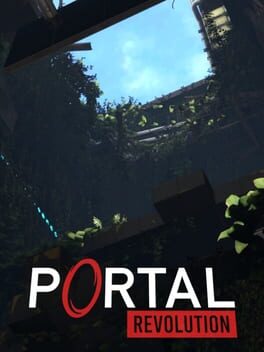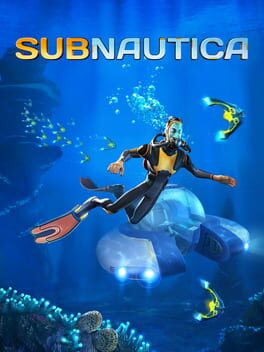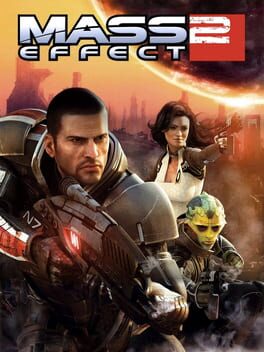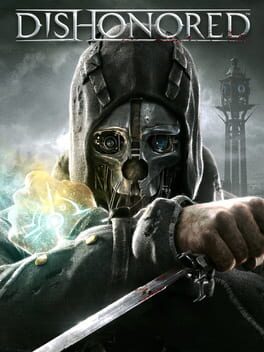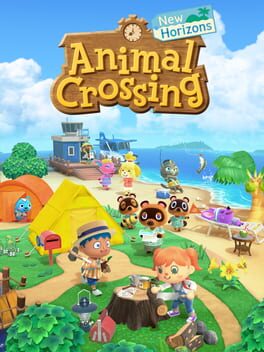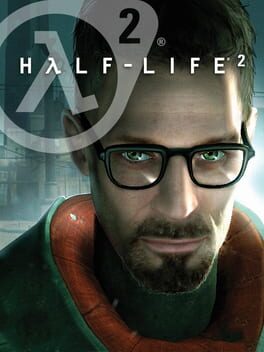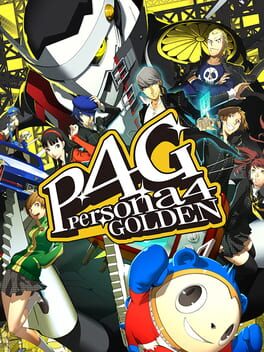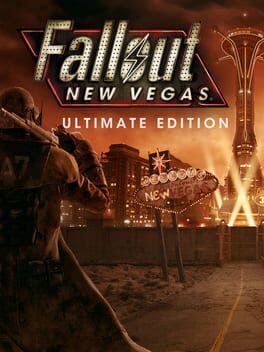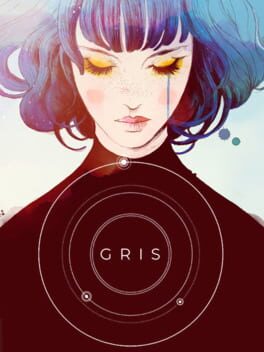x003
2021
I found the gameplay elements of Inscryption to be super fun, especially the first act with the roguelike deck-building; I missed it a lot during the second act. The stylisation and art style in the first act were both great. Both mechanics and art got weaker the further the game progressed.
I think fundamentally the game wasn't to my taste; I found the meta-narrative corny, and the acting strayed into wooden. If act one had been expanded to be the whole game I could easily see this being one of my favourite games ever, but it's not. Ultimately was fun enough for me to play in a few days.
I think fundamentally the game wasn't to my taste; I found the meta-narrative corny, and the acting strayed into wooden. If act one had been expanded to be the whole game I could easily see this being one of my favourite games ever, but it's not. Ultimately was fun enough for me to play in a few days.
2017
Hollow Knight has SO many amazing things about it: the exploration, the combat, the grind--it instantly hooked me. While the difficulty is definitely punishing, it becomes easier the further in you get. The narrative is well-constructed and given in pieces that make you want more; equally, for those that would just prefer to play a Metroidvania sans plot, it's all there. The art style is also adorable, and I really liked the music.
My primary critique of the game is a critique I give lots of games: there's just too much to do. After collecting every soul vessel and shard and charm and completing three of the possible endings, knowing that I had an entirely untouched extra expansion (Godmaster) and a half (The Grimm Troupe)--credit where credit is due for giving all expansions away for free--just exhausted me. Even worse, Godmaster seems to solely contain the element that is my least favourite: the boss battles. While I enjoyed the boss battles within the larger frame of the game, especially as a way to unlock new areas or show improvement in combat, infinite rounds of fighting with no reprieve is not to my personal taste.
I'm nevertheless marking the game as completed; while I may come back to it later, I definitely finished the non-expansion game.
My primary critique of the game is a critique I give lots of games: there's just too much to do. After collecting every soul vessel and shard and charm and completing three of the possible endings, knowing that I had an entirely untouched extra expansion (Godmaster) and a half (The Grimm Troupe)--credit where credit is due for giving all expansions away for free--just exhausted me. Even worse, Godmaster seems to solely contain the element that is my least favourite: the boss battles. While I enjoyed the boss battles within the larger frame of the game, especially as a way to unlock new areas or show improvement in combat, infinite rounds of fighting with no reprieve is not to my personal taste.
I'm nevertheless marking the game as completed; while I may come back to it later, I definitely finished the non-expansion game.
2024
This review contains spoilers
Portal: Revolution, even for a fan-made game, is great. Puzzles are fun and innovative, using concepts that could've been explored in Valve titles without any of the frustrating ultra-difficulty found in other fan-games. Unfortunately, they did also heavily rely on looping--doing the same sequence three or four times in a row--which often grew monotonous.
Environments were gorgeous with a glorious blend of nature and sterility that made them fun to explore. I know some people have reported glitches or softlocking. I personally experienced neither.
The one key area the game let itself down was the writing. The reason I still rate Portal 2 so highly over a decade later is for the strength and genuine humour in its character voices and narrative; comparatively, Portal: Revolution sits firmly in its shadow. While the conceit was good, the story was otherwise the same as Portal 2 in almost every way.
Stirling, in particular, felt like a bootleg version of Wheatley with none of the narrative sense. Why would Stirling want to reactivate GLaDOS when he also admits he's terrified of her? It could have been an easy sell: maybe she allowed the other artificial intelligences to do as they want; maybe they revered and feared her in equal measure. Instead, his characterisation was muddied and confusing, echoing Wheatley in all the wrong ways.
While I also realise this was a fan-game, designed to bulk out resumes--however the decision to just cut to black at the end of the game was a confusing one, especially after the agonising process of setting everything up.
Overall: a great fan game that aspires towards both the spirit and puzzles of the original game, but fails to capture either.
Environments were gorgeous with a glorious blend of nature and sterility that made them fun to explore. I know some people have reported glitches or softlocking. I personally experienced neither.
The one key area the game let itself down was the writing. The reason I still rate Portal 2 so highly over a decade later is for the strength and genuine humour in its character voices and narrative; comparatively, Portal: Revolution sits firmly in its shadow. While the conceit was good, the story was otherwise the same as Portal 2 in almost every way.
Stirling, in particular, felt like a bootleg version of Wheatley with none of the narrative sense. Why would Stirling want to reactivate GLaDOS when he also admits he's terrified of her? It could have been an easy sell: maybe she allowed the other artificial intelligences to do as they want; maybe they revered and feared her in equal measure. Instead, his characterisation was muddied and confusing, echoing Wheatley in all the wrong ways.
While I also realise this was a fan-game, designed to bulk out resumes--however the decision to just cut to black at the end of the game was a confusing one, especially after the agonising process of setting everything up.
Overall: a great fan game that aspires towards both the spirit and puzzles of the original game, but fails to capture either.
2007
I just really miss the era of gaming where we got reasonably-priced, short, and tightly-paced and written games with interesting ideas.
I do think Portal 2 is stronger--owing partially to the way the narrative feels very much like it's been added-on to a pre-existing game (which, iirc, it basically was)--but in terms of puzzle games, it has a real charm. The portal gun is a fantastic mechanic, and although it lacks some of the tricks added in the second game (for example, having the portals neatly line up vertically or horizontally), it works fantastically here too.
GLaDOS' writing is strong here, too, and although I of course knew her character's conceit, it was still super fun to watch her progress through the course of the game.
Also: basically no cutscenes!!!!!!!!!!
I do think Portal 2 is stronger--owing partially to the way the narrative feels very much like it's been added-on to a pre-existing game (which, iirc, it basically was)--but in terms of puzzle games, it has a real charm. The portal gun is a fantastic mechanic, and although it lacks some of the tricks added in the second game (for example, having the portals neatly line up vertically or horizontally), it works fantastically here too.
GLaDOS' writing is strong here, too, and although I of course knew her character's conceit, it was still super fun to watch her progress through the course of the game.
Also: basically no cutscenes!!!!!!!!!!
Red Dead Redemption 2, plays--often by itself with no input from the player--as a Shakespearean tragedy, haunted by the ghost of crunch, with far too many things to do for the sake of having things to do. The point of it all is cinematic realism--until, of course, it isn't.
Character writing, often so effusively praised, I found lacklustre; despite being one of the lynchpins of the narrative, Dutch's descent into despotism felt insincere as I never got the feeling he was a good leader to begin with, already prone to egoism and wild bouts of jealousy. Bar Arthur (who is fantastically written and acted) and John (significantly fleshed out from RDR1), the rest largely feel like archetypes; while they range from likeable to annoying, it's difficult to invest in or feel bad for them as the world they've constructed into collapses around them.
It's on the realism front I feel RDR2 is the most inconsistent. It's expected you travel from point A to point B manually, riding a horse and chatting with your compatriots about the latest ego trip fuelled plan which will definitely not fail this time, really--only for you to murder everyone in a mile radius, shooting cartoonishly except for when it's time to reload, which is done with agonising care. There's no punishment for lingering in towns which you killed damn near every person; no evidence that they've suffered a population loss for your murder spree.
Realism also fails in the fundamental disconnect between the near-infinite amount of things to do and the narrative. I could collect as much money as possible, donate it painstakingly to camp, upgrade tents and buy medicine--only to have to follow main story quest with the same beats: chat, press A, shoot, run away.
We are instructed, very carefully, over and over again, that things were Better Before and yet see no evidence of it. There is no evidence of nobility, of trying to marry the potentially unethical to immoral with the good; there is just murder, failed heists. Combined with the often varied dedication to realism, it's therefore difficult to invest in the narrative stakes. Are we being chased by the law? Or are we simply loitering in camp, a group large and conspicuous enough to undoubtedly be noticed by passers-by? It fails in that there's no impetus to propel the narrative forward until Arthur's had his fill of hunting and fishing and fossil finding and looting and side quests and train-robbing or train-catching and whatever else it is you'd like to do--often with your hand held by the UI--before you decide that there is a story and you probably should get back to it.
It was going onto one of those story missions that I realised I didn't want to continue any more; that the game had well and truly worn me out, and if I had to watch another beautifully rendered, wonderfully acted cinematic cutscene where I would be given eventual permission to press A at the end to get my horse to move, I wouldn't even be enjoying myself. I might pick it back up at a later date, but for the moment, I'm done.
Character writing, often so effusively praised, I found lacklustre; despite being one of the lynchpins of the narrative, Dutch's descent into despotism felt insincere as I never got the feeling he was a good leader to begin with, already prone to egoism and wild bouts of jealousy. Bar Arthur (who is fantastically written and acted) and John (significantly fleshed out from RDR1), the rest largely feel like archetypes; while they range from likeable to annoying, it's difficult to invest in or feel bad for them as the world they've constructed into collapses around them.
It's on the realism front I feel RDR2 is the most inconsistent. It's expected you travel from point A to point B manually, riding a horse and chatting with your compatriots about the latest ego trip fuelled plan which will definitely not fail this time, really--only for you to murder everyone in a mile radius, shooting cartoonishly except for when it's time to reload, which is done with agonising care. There's no punishment for lingering in towns which you killed damn near every person; no evidence that they've suffered a population loss for your murder spree.
Realism also fails in the fundamental disconnect between the near-infinite amount of things to do and the narrative. I could collect as much money as possible, donate it painstakingly to camp, upgrade tents and buy medicine--only to have to follow main story quest with the same beats: chat, press A, shoot, run away.
We are instructed, very carefully, over and over again, that things were Better Before and yet see no evidence of it. There is no evidence of nobility, of trying to marry the potentially unethical to immoral with the good; there is just murder, failed heists. Combined with the often varied dedication to realism, it's therefore difficult to invest in the narrative stakes. Are we being chased by the law? Or are we simply loitering in camp, a group large and conspicuous enough to undoubtedly be noticed by passers-by? It fails in that there's no impetus to propel the narrative forward until Arthur's had his fill of hunting and fishing and fossil finding and looting and side quests and train-robbing or train-catching and whatever else it is you'd like to do--often with your hand held by the UI--before you decide that there is a story and you probably should get back to it.
It was going onto one of those story missions that I realised I didn't want to continue any more; that the game had well and truly worn me out, and if I had to watch another beautifully rendered, wonderfully acted cinematic cutscene where I would be given eventual permission to press A at the end to get my horse to move, I wouldn't even be enjoying myself. I might pick it back up at a later date, but for the moment, I'm done.
2014
For me, the ocean only garners a mix of love and fear. I feel safe in the water; buoyant, but carefully cautious. There's a lot to be lost if you're not careful, and it's very easy to go from enjoying yourself to being cold and exhausted. The same can be said for Subnautica.
I initially found the crafting and survival elements to be well-balanced: required, but not exhausting, but the game truly shone in two key areas: exploratively and narratively. I delighted in exploring. The seascapes were beautiful, ranging from shallow reefs to submarine volcanos; scanning new species felt rewarding. With a few exceptions, I felt like time and attention had been paid to the species, where they lived, what they relied upon to eat and be eaten by--and the variety of fish and fauna were great.
The narrative, too, was deftly handled. Audio logs, similar to Bioshock, were placed around the map. Collecting them gave you hints as to what had happened and why, and what might just happen in the future as a consequence of your being lost at sea.
Unfortunately, too many things about the game bogged it down, including its core gameplay loop. I personally found the lack of map frustrating. Beacons could only help so much; even with the ability to turn off their appearance in the menu, I needed them on to be able to work out where I was: what I had explored before and where I was going to go next.
Equally, the further I got into the game, the more frustrating the survival mechanics were. Some elements--such as acquiring drinking water--became easier, and went from feeling urgent to feeling secondary; it did become frustrating having to hunt for food, or go searching for near-infinite amounts of titanium to build a habitat, or a new diving suit.
Ultimately, I enjoyed my time in the ocean, and felt as though if the survival mechanisms were less demanding, would have found the game relaxing--however don't think I'll be returning any time soon.
I initially found the crafting and survival elements to be well-balanced: required, but not exhausting, but the game truly shone in two key areas: exploratively and narratively. I delighted in exploring. The seascapes were beautiful, ranging from shallow reefs to submarine volcanos; scanning new species felt rewarding. With a few exceptions, I felt like time and attention had been paid to the species, where they lived, what they relied upon to eat and be eaten by--and the variety of fish and fauna were great.
The narrative, too, was deftly handled. Audio logs, similar to Bioshock, were placed around the map. Collecting them gave you hints as to what had happened and why, and what might just happen in the future as a consequence of your being lost at sea.
Unfortunately, too many things about the game bogged it down, including its core gameplay loop. I personally found the lack of map frustrating. Beacons could only help so much; even with the ability to turn off their appearance in the menu, I needed them on to be able to work out where I was: what I had explored before and where I was going to go next.
Equally, the further I got into the game, the more frustrating the survival mechanics were. Some elements--such as acquiring drinking water--became easier, and went from feeling urgent to feeling secondary; it did become frustrating having to hunt for food, or go searching for near-infinite amounts of titanium to build a habitat, or a new diving suit.
Ultimately, I enjoyed my time in the ocean, and felt as though if the survival mechanisms were less demanding, would have found the game relaxing--however don't think I'll be returning any time soon.
2010
2012
2022
The writing and narrative in Citizen Sleeper are both very hit-and-miss: some storylines are written very well (both thematically and in prose quality), while others had my eyes glazed over and clicking blindly just to get through it. Some characters are compelling and relatable; others were just kind of annoying--and I don't mean that about the obviously cruel character, I mean that for characters I think I was supposed to like.
Art style is nice--I liked the art of each of the characters you meet, and felt the stylisation was great. I like the station and the way it's designed both visually and in how you interact with it (the moving 3d models were nice). I think the robot designs were also GREAT, and I enjoyed playing as a robot--even if the 'class' choice at the beginning had 0 outcome on the actual consequences of the game.
I'm less a fan of the actual gameplay. Citizen Sleeper can't seem to decide whether it's a visual novel or an RPG; if it's the former, then I would expect dice rolls to matter far less than they do, and if it's the latter, I expect far more branching narrative and meaningful choice than what I got.
There's also the inventory management, which I personally found OK but I absolutely realise is not to everyone's taste. In early game, resources are super scarce; by late game, collecting items by clicking to different locations was exhausting as I'd already been doing it for three hours, and I already had everything I'd ever need and then some.
I do recommend Citizen Sleeper on the basis of it being an interesting foray into cyberpunk as a genre--but I wouldn't say the writing is stellar or had me emotional in any way. More a fun romp than anything else, and it has the dubious honour of being much better than most of its peers.
Art style is nice--I liked the art of each of the characters you meet, and felt the stylisation was great. I like the station and the way it's designed both visually and in how you interact with it (the moving 3d models were nice). I think the robot designs were also GREAT, and I enjoyed playing as a robot--even if the 'class' choice at the beginning had 0 outcome on the actual consequences of the game.
I'm less a fan of the actual gameplay. Citizen Sleeper can't seem to decide whether it's a visual novel or an RPG; if it's the former, then I would expect dice rolls to matter far less than they do, and if it's the latter, I expect far more branching narrative and meaningful choice than what I got.
There's also the inventory management, which I personally found OK but I absolutely realise is not to everyone's taste. In early game, resources are super scarce; by late game, collecting items by clicking to different locations was exhausting as I'd already been doing it for three hours, and I already had everything I'd ever need and then some.
I do recommend Citizen Sleeper on the basis of it being an interesting foray into cyberpunk as a genre--but I wouldn't say the writing is stellar or had me emotional in any way. More a fun romp than anything else, and it has the dubious honour of being much better than most of its peers.
2004
2020
2018
2018


